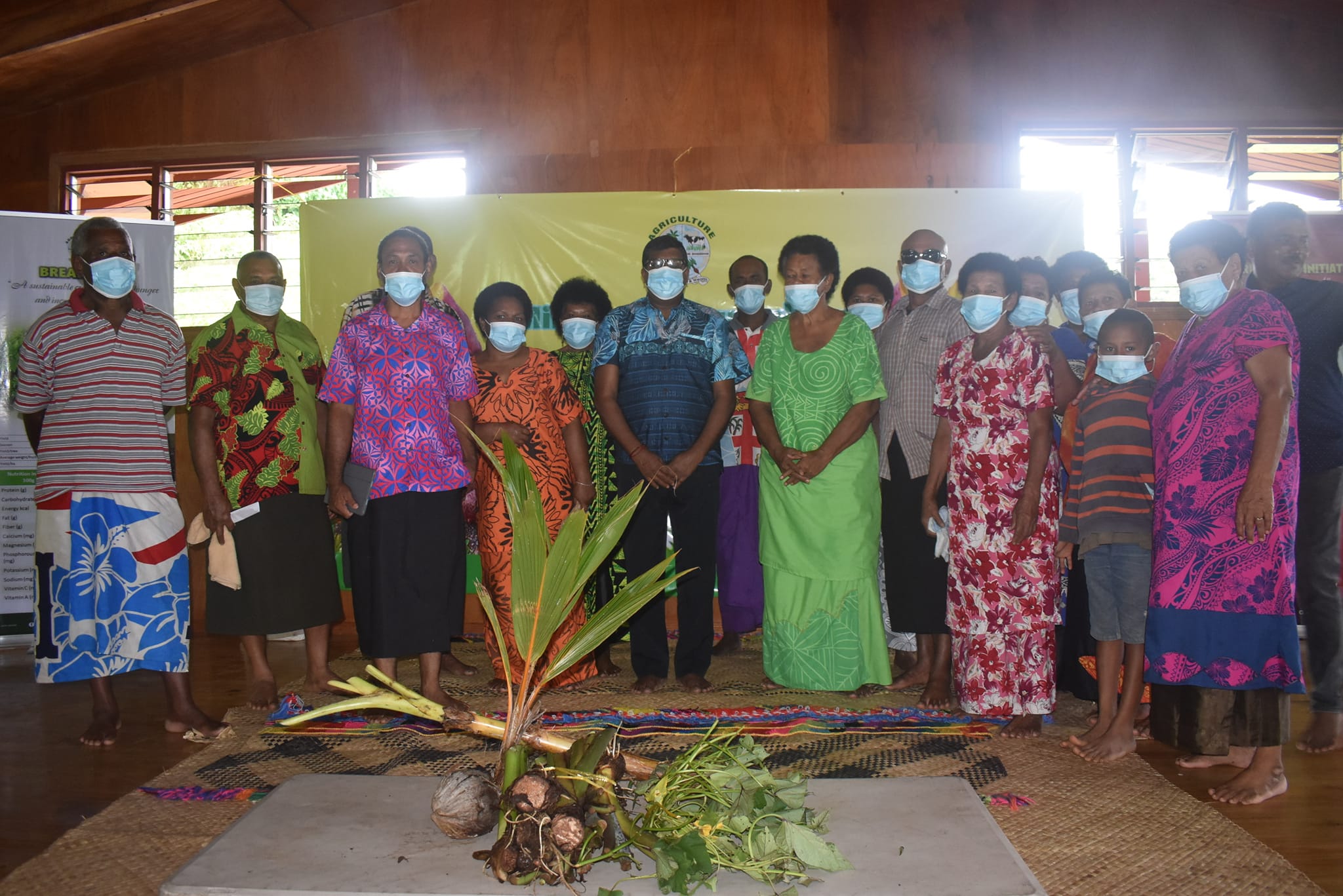CLIMATE-SMART AGRICULTURE APPROACH INTRODUCED TO WELAGI VILLAGE
December 9, 2021

Picture: Minister for Agriculture, Waterways and Environment Hon. Dr. Mahendra Reddy with farmers of Welagi in Taveuni.
There is an urgent need to relook at the behaviour and conduct of activities derived from land-based resources, such as agriculture to mitigate the effects of climate change.
This was relayed by Minister for Agriculture, Waterways and Environment Hon. Dr. Mahendra Reddy at Welagi Village on Taveuni as he launched the initiation of the ‘Climate Smart Food Security’ programme yesterday.
“People haven’t really understood how our activities, and how climate change has jointly contributed to the current crises that we face now.
“Therefore, we need to seriously relook at how we conduct ourselves, especially how we undertake ourselves in various attributes, be it logging or for agriculture activities because we are mining our soils instead of practising an abundance of sustainable agriculture practices,” said Hon. Reddy.
“People have become careless, sustainable farming practices like contour farming is hardly practised nowadays, unlike before, why? Because there is a race to make money and people have lost sight on the impact of these unsustainable agricultural practices that will inevitably affect our future generations who will also depend on that land, which unfortunately is now being eroded further,” he stressed.
Minister Reddy also elaborated that human activity through expansion, via infrastructure construction, settlement establishment, and various other primary based activities along the water catchment areas have contributed to the effects of climate change as these activities alter the makeup of natural resources.
He said the overall objective was to the increase productivity of land to initiate the planting of climate-resilient crops such as Breadfruit, Vudi, Dalo ni Tana and Kumala at the village as it was also earmarked to establish food security in times of extreme climatic events such as natural disasters.
Altogether, 50 potted Breadfruit seedlings, 50 Vudi suckers, 500 Dalo ni Tana suckers, 500 Kumala cuttings and 50 Dwarf Coconuts were distributed to 50 households in Welagi Village.
Climate-smart agriculture integrates not only a certain variety of crops but soil, agro-inputs and farming systems. Climate-smart agriculture is an approach that helps guide actions to absorb shocks, stress and transform agri-food systems towards green and climate-resilient practices.
It aims to tackle three main
objectives:
· Sustainably increasing
agricultural productivity and incomes;
· Adapting and building
resilience to climate change, and;
· Reducing and/or removing greenhouse gas emissions, where possible.
-Ends-
